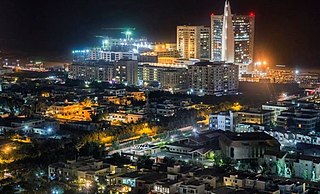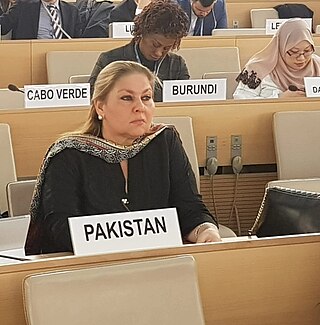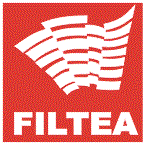Related Research Articles

Hyderabad is a city and the capital of Hyderabad Division in the Sindh province of Pakistan. It is the second-largest city in Sindh, and the fifth largest in Pakistan.

The International Textile, Garment and Leather Workers' Federation (ITGLWF) was a global union federation. In 2005 it had 217 member organizations in 110 countries, representing a combined membership of over 10 million workers.

Karachi is the financial and industrial capital of Pakistan. As of 2019, Karachi has an estimated GDP (PPP) of $164 billion. The city accounts about half of the total collections of the Federal Board of Revenue, out of which, approximately half are customs duty and sales tax on imports. Karachi produces about 30 percent of value added in large-scale manufacturing, 25% of the GDP, the World Bank identified Karachi as the most business-friendly city in Pakistan. In 2010, research by the global human resources company Mercer found Karachi to be the most inexpensive city in the world.
The All Pakistan Federation of United Trade Unions (APFUTU) is a national trade union centre in Pakistan. It was formed in 1992 and was registered by the National Industrial Relations Commission. The APFUTU has a membership of 652,723. The APFUTU-based industrial city of Gujrat (Punjab).
Pakistani clothing refers to the ethnic clothing that is typically worn by people in the country of Pakistan and by Pakistanis. Pakistani clothes express the culture of Pakistan, the demographics of Pakistan, and cultures from Punjab, Sindh, Balochistan, Khyber Pakhtunkhwa, Gilgit-Baltistan, and Kashmir regions of the country. The clothing in each region and culture of Pakistan reflect weather conditions, way of living, the textiles and embroidery used and its distinctive style which gives it a unique identity among all cultures.

In 1972, Pakistan's largest city, Karachi, witnessed major labour unrest in its industrial areas of S.I.T.E Industrial Area and Korangi-Landhi. Several protesting workers were killed or injured by police during this period. In a number of cases, workers briefly occupied their factories.
Factories in Pakistan's two largest cities of Karachi and Lahore caught fire on 11 September 2012. The fires occurred in a textile factory in the western part of Karachi and in a shoe factory in Lahore. The fires are considered to be the most deadly and worst industrial factory fires in Pakistan's history, killing 289 people and seriously injuring more than 600.

IndustriALL Global Union is a global union federation, founded in Copenhagen on 19 June 2012.

Sindhi clothing are a part of the Sindhi culture. Sindhi women and men wear the Shalwar Qameez or the Kurta with Pyjama. Women also wear Sari or ghagra. However, before the adoption of the Shalwar kameez, kurta, the Sari as well as other articles of clothing, Sindhis had their own traditional costumes.

Rabiya Javeri Agha is the Chairperson of the National Commission for Human Rights (NCHR) in Pakistan, and a retired civil servant officer who served in the Government of Pakistan in BPS-22 grade as Federal Secretary. She was the first unanimously elected female President of the Pakistan Administrative Service (PAS) Officers Association, and she has had an extensive career ranging from human rights, women's development, sustainable tourism, energy, finance and trade.
Bangladesh Homeworkers Women Association, also known as BHWA, is an NGO, headquartered in Dhaka, Bangladesh. It is mostly known for working with the underprivileged homeworkers, also known as home-based workers by initiating social awareness programs, advocacy workshops, originating policy drafts, development and recommendation. BHWA focuses on key issues such as the elimination of child labour, female labourers' rights in the informal sector, occupational health and safety for women workers who are not covered by the Labour Code in Bangladesh.

The Italian Federation of Textile and Garment Workers was a trade union representing workers in the textile and clothing industries in Italy.
The National Garment Workers Federation (NGWF) is a registered national trade union federation of garment workers in Bangladesh. With 87 registered factory unions, it ifs considered one of the four main federations of garment workers' unions. NGWF is the initiator and a member of the Bangladesh Garments Workers Unity Council and a member of the Bangladesh Center for Workers' Solidarity. It is affiliated with the IndustriALL Global Union and one of the signatories of the Bangladesh Accord.
The Bangladesh Independent Garment Workers Union Federation (BIGUF) is a trade union federation of garment workers in Bangladesh. It is considered one of the four main federations of garment workers' unions. BIGUF is affiliated with the IndustriALL Global Union and a member organisation of the Bangladesh Center for Workers Solidarity. It is also one of the signatories of the Bangladesh Accord. Unlike many other trade unions in Bangladesh, it is explicitly not affiliated with any political party.
Zehra Khan is a Pakistani trade unionist and activist. She is the general secretary of the Home-Based Women Worker's Federation (HBWWF). She is a member of many tripartite committees including the Sindh Minimum Wage Board, the Sindh Tripartite Labour Standing Committee, the Sindh Occupational and Health Council, and the Sindh HBWs Governing Body.
The National Coordination Committee for Workers' Education (NCCWE) is a national trade union centre in Bangladesh. The centre unites 14 national trade union federations. It is affiliated with the International Trade Union Confederation, the World Federation of Trade Unions and the International Transport Workers Federation. It is also supported by the International Labour Organization.
Progressive Students Federation (PrSF) is a left-wing socialist students’ organisation based in Pakistan. PrSF was formed in 2014 in Khyber-Pakhtunkhwa but was later joined various factions of National Students Federation in Punjab and Sindh. The organisation has mobilised students and youth all over Pakistan for democratisation of campuses, restoration of student unions and universal education.
Neil Joseph Kearney was an Irish trade union leader.
The crafts of Sindh and its craftsmen are held in high esteem and their works are notable not only in Sindh but also in many other places.
References
- ↑ "Invisible no more: Sindh all set to adopt a policy for home-based workers". The Express Tribune. 16 January 2017. Retrieved 3 December 2020.
- ↑ "PROFILE: Fighting Forward: Home-based women workers organize in Pakistan". IndustriALL. 13 November 2019. Retrieved 3 December 2020.
- ↑ "Pakistan's International Women's Day march: Inclusive or exclusive?". South Asia@LSE. 6 May 2020. Retrieved 3 December 2020.
- ↑ "Women that show the way. A conversation with Zehra Akbar Khan of the HBWWF, Pakistan". ∫connessioni (in Italian). Retrieved 3 December 2020.
- ↑ "Sindh.Home Based Women Workers Federation Archives". Pakistan Press International. Retrieved 3 December 2020.
- ↑ "Women that show the way. A conversation with Zehra Akbar Khan of the HBWWF, Pakistan". ∫connessioni (in Italian). Retrieved 3 December 2020.
- ↑ "NTUF Pakistan: demos and rallies for the WDDW". www.ituc-csi.org. Retrieved 3 December 2020.
- ↑ "Speakers want labour rights for 5 million women workers in Sindh". AP-IRNet. Archived from the original on 7 May 2022. Retrieved 3 December 2020.
- ↑ "Unions hail Pakistan home worker protection law". www.just-style.com. 31 May 2018. Archived from the original on 21 January 2021. Retrieved 3 December 2020.
- ↑ "Workers bodies demand implementation of labour laws in construction sector". The Biz Update. 4 April 2020. Retrieved 3 December 2020.
- ↑ "'Moving mountains': How Pakistan's 'invisible' women won workers' rights". the Guardian. 1 December 2020. Retrieved 3 December 2020.
- ↑ Reporter, The Newspaper's Staff (17 January 2017). "New Sindh policy on home-based workers lauded". DAWN.COM. Retrieved 3 December 2020.
- ↑ "HBWWF Demands Practical Implementation Of Sindh Home-based Worker Act". UrduPoint. Retrieved 3 December 2020.
- ↑ "Sindh working on implementation of Home-based Workers Act | Pakistan Today". www.pakistantoday.com.pk. Retrieved 3 December 2020.
- ↑ "Call for early registration of home-based workers". The Nation. 15 December 2019. Retrieved 3 December 2020.
- ↑ "HBWWF, Sindh labour department sign MoU with HBWWF to register home-based workers". www.thenews.com.pk. Retrieved 3 December 2020.
- ↑ NTGent (8 June 2020). "School of Resistance: Distributing Dignity". NTGent. Retrieved 3 December 2020.
- ↑ "International Women's Day: Women workers announce rally in Karachi". MM News TV. 6 March 2020. Retrieved 3 December 2020.
- ↑ Yaseen (29 October 2019). "Workers urged to get organized to end precarious work". National Trade Union Federation. Archived from the original on 1 December 2020. Retrieved 3 December 2020.
- ↑ pakobserver. "home based federation".
- ↑ Clean Cloth Campaign, Home Net International "Affiliations". HBWWF. Retrieved 13 March 2021.